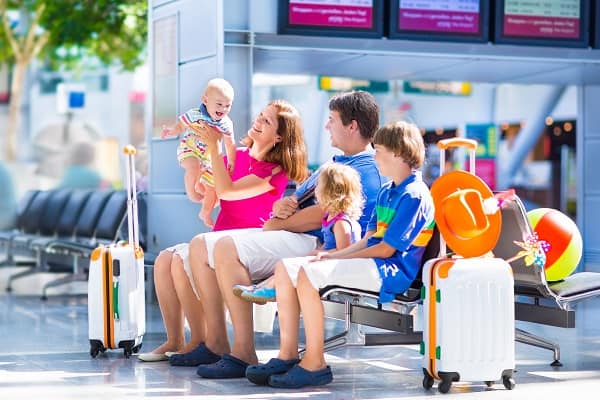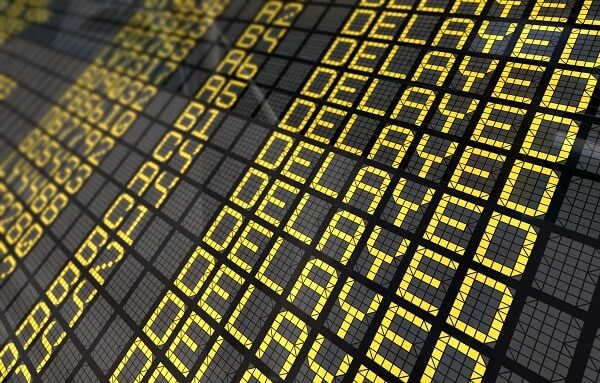Posted on
The airport usually marks the beginning, and end of any trip – unfortunately these parts tend to be the most stressful and annoying.
Airport delays are getting longer, and their prices are getting more expensive, meaning that the dreaded airport experience is only set to get worse. Below are our top tips for surviving the airport;

Luggage
Luggage raises the most uncertainty among passengers, and also causes delays, fines and upset. What is allowed is hand luggage? What weight allowance is allowed? How do I transport valuables safely? How can I make sure my luggage arrives safely at my destination?
1) You should not pack anything into your hand luggage which could cause harm or alarm to fellow passengers, for example; razor blades, knives and pen knives, scissors, needles, bats, cutlery, toy or fake guns. Liquids over 100ml are also not allowed. Check your airport’s or airline’s website for more information.
2) Weight and size restrictions can be found on the airline’s website, and are usually displayed when you are booking the flight. Weight your luggage on your scales before you leave for the airport, to avoid any nasty fines.
3) Laptops should always be carried in your hand luggage – never put them in your case. It doesn’t matter how much padding you put in, they are extremely likely to be damaged. Always leave valuables at home if possible, but if you must bring them, keep them with you at all times.
4) Always padlock your case, and put a label with your contact details on the outside, and a duplicate copy in the pocket of your suitcase (in case the outer one falls off). Many cases look the same, so put something distinguishing on yours to stop someone else picking it up by accident – tying a colorful scarf or tie around the handle is always a good idea.
Check in Online
Most airlines now offer the option to check in online, if you can, doing this before you arrive at the airport could save you some time. All you will need to do is drop off your bags at the appropriate desk.
Timing
Most airlines open check in desks two hours before the set departure time of the flight, so to be safe, always aim to get to the airport two hours before your flight is due to leave. Although this does mean you could be sitting around for a while, it also gives you a cushion if you get stuck in unexpected traffic, or forget something. Airlines will usually be unsympathetic if you are late; it is your job to get there on time.
Parking
Parking at the airport can be extremely expensive, look up deals on the internet or research alternative modes of transport, for example a taxi or the train.
Security checks – be prepared!
Security always seems to be the slowest part of the journey through the airport. You can speed up the process by being prepared. Make sure you remove your belt, the contents of your pockets, and your laptop from your bag, and then place everything in the trays provided.
Remember that any liquids must be removed from your hand luggage, put in a transparent bag (available at security) and put in the tray.
Pay attention, if they ask you to remove your shoes, or walk through the scanner again, make sure you do so quickly. Collect your possessions and go to the designated area provided to put everything back.
Delays
Unfortunately, if your flight is delayed, there is not much you can do;
1) Ask a member of staff if they can give you any further information
2) keep an eye on the departures screen
3) Keep calm
That is about it. If your flight is delayed, why not pamper yourself and invest in a one day pass to the departures lounge? You will get comfortable seating, peace and quiet, snacks, newspapers and the lounge assistants will update you about the status of your flight.
Don’t be too distracted by duty free
Keep checking the departures screen and listening for announcements, otherwise you could delay the flight.
Missing Luggage
If your luggage does go missing, alert airport staff and they will direct you to a desk to lodge the loss. Then call your travel insurance company, and they can advise you on what to do next.
Further Transport
Make sure you have planned transport from the airport to your accommodation. For example if the hotel are sending transport to pick you up, where are you meeting them? Do you need to show them anything? If you plan to travel by taxi, make sure you have currency ready.
Have a great trip!




